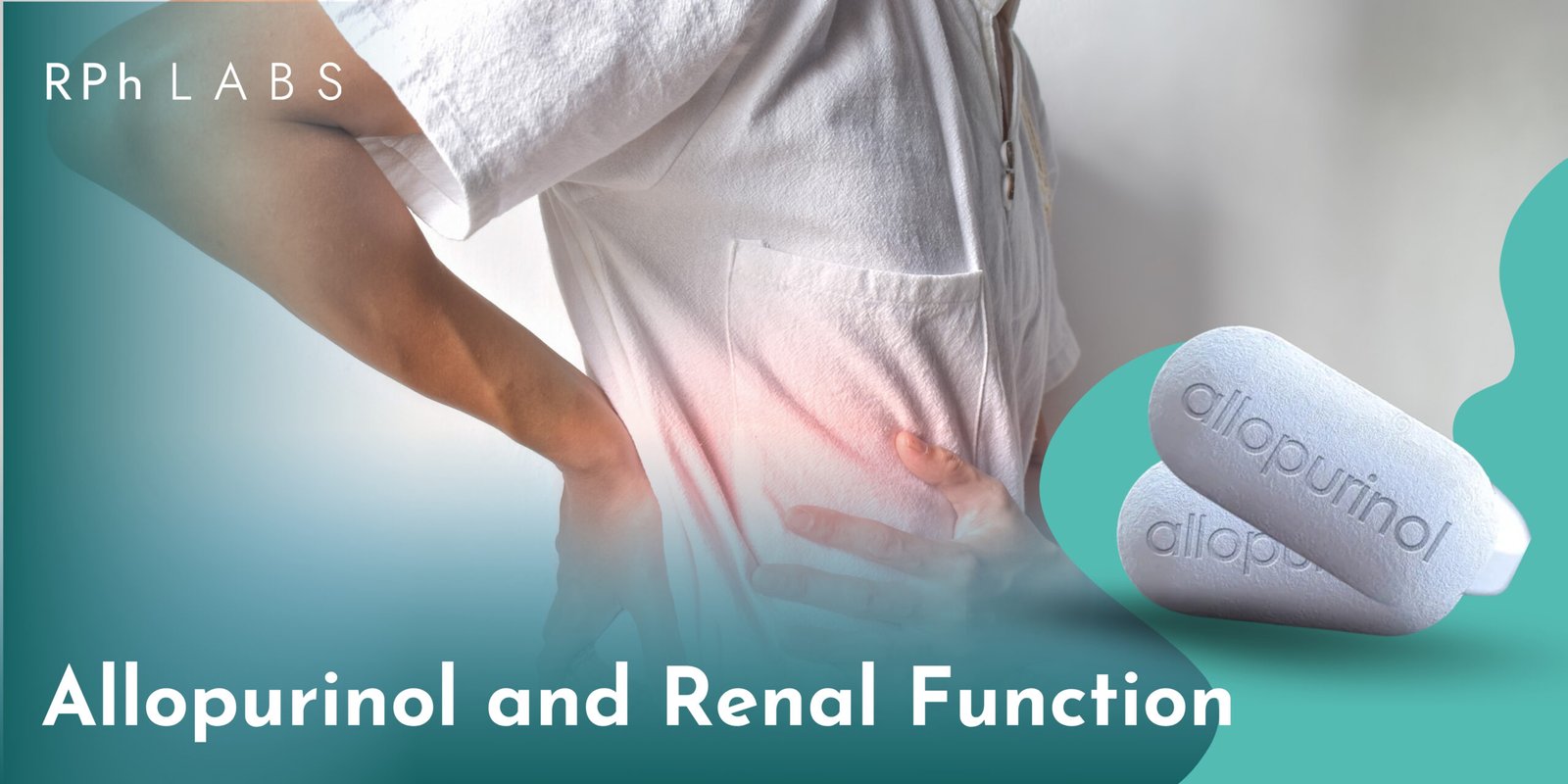
Allopurinol and Renal Function
High uric acid levels, also known as hyperuricemia, can be caused by a number of factors, including genetics, diet, medications, and other health conditions. High uric acid levels, also called hyperuricemia, can lead to several health problems, most notably gout (severe joint pain and inflammation), kidney stones, and potential complications related to cardiovascular health, including increased risk of hypertension, heart disease, and stroke, due to its association with metabolic syndrome; it can also contribute to chronic kidney disease in some cases. Xanthine oxidase (XO) is an enzyme that converts hypoxanthine to uric acid and Allopurinol inhibits (hinders) this enzyme, as it lowers serum uric acid levels which can otherwise contribute to kidney damage, Allopurinol and renal function correlate. However, close monitoring of kidney function is crucial as dosage adjustments may be required.
Renal System and Related Diseases
The renal system comprises the kidneys, ureters, bladder, and urethra. The kidneys filter waste products and excess substances from the blood, producing urine that travels through the ureters to the bladder and is eventually excreted via the urethra. Disruptions or diseases affecting any component of this system can impair renal function.
Kidney-Related Diseases
Kidney-related diseases encompass a range of conditions that impair renal function.
- Acute Kidney Injury (AKI): A sudden decline in kidney function, often resulting from factors such as dehydration, infection, or exposure to nephrotoxic agents.
- Chronic Kidney Disease (CKD): A progressive loss of kidney function over time, frequently associated with conditions like diabetes, hypertension, and prolonged hyperuricemia.
- Kidney Stones: Solid deposits formed from minerals and salts within the kidneys, which can obstruct urine flow and cause significant pain.
Ureter-Related Diseases
Diseases affecting the ureters can impede the normal flow of urine from the kidneys to the bladder.
- Ureteral Obstruction: Blockage of the ureters, potentially due to kidney stones, tumors, or strictures, leading to hydronephrosis and impaired renal function.
- Ureteritis: Inflammation of the ureters, often resulting from infections or irritants, which can cause pain and urinary disturbances.
Urethra-Related Diseases
Conditions involving the urethra can affect the excretion of urine from the body.
- Urethritis: Inflammation of the urethra, commonly caused by infections, leading to symptoms such as burning during urination and discharge.
- Urethral Stricture: Narrowing of the urethra due to scar tissue, which can obstruct urine flow and result in urinary retention.
Did you know?
FDA suggests variants in CYP2C9 and VKORC1 may be taken into consideration before starting Warfarin (a drug administered during the prostate embolization process). A PGx test by RPh LABS can help your doctor with this genome-based dosing.
Negative Impact of Uric Acid on Renal Function
Elevated uric acid levels can have detrimental effects on renal function. Hyperuricemia is associated with the development and progression of CKD. Uric acid can induce renal vasoconstriction, inflammation, and oxidative stress, contributing to kidney damage. Additionally, uric acid crystals can form within the renal tubules, leading to acute kidney injury and stone formation.
Allopurinol: Indications, Dosage, and Administration
Allopurinol is indicated for the management of conditions associated with hyperuricemia, including gout, recurrent kidney stones, and certain types of kidney disease.
- Dosage Adjustments in Renal Impairment: In patients with impaired renal function, careful dosing of allopurinol is essential to minimize the risk of toxicity. Traditionally, lower doses have been recommended to prevent adverse effects; however, recent studies suggest that restricting the dose of allopurinol based on kidney function may result in the majority of people with gout failing to achieve target serum urate concentrations.
bpspubs.onlinelibrary.wiley.com - Minimum Age Requirements: Allopurinol can be prescribed to both adults and children, with dosing adjustments made based on age, weight, and renal function.
- Available Potencies: Allopurinol is available in various strengths, commonly including 100 mg and 300 mg tablets, allowing for flexible dosing regimens tailored to individual patient needs.
- Administration Medium: Allopurinol is typically administered orally in tablet form. For patients unable to take oral medications, intravenous formulations may be considered.
Boxed Warnings and Hypersensitivity Reactions
Allopurinol carries a risk of severe hypersensitivity reactions, including Stevens-Johnson syndrome and toxic epidermal necrolysis. These reactions are rare but can be life-threatening. Patients should be monitored for signs of hypersensitivity, particularly during the initial stages of therapy.
HLA-B*5801 and Allopurinol Hypersensitivity
The presence of the HLA-B*5801 allele is strongly associated with an increased risk of allopurinol-induced hypersensitivity reactions. Genetic screening for this allele is recommended in high-risk populations before initiating allopurinol therapy to mitigate the risk of severe adverse effects.
Pharmacogenomics and Renal Function-Related Medications
Pharmacogenomic testing can inform the use of various medications in patients with renal disease. For instance, genetic variations can influence patient responses to drugs such as warfarin, clopidogrel, and statins, which are commonly used in individuals with cardiovascular and renal comorbidities. Incorporating pharmacogenomic data into clinical decision-making can enhance drug efficacy and reduce the risk of adverse effects.
Conclusion
The correlation between Allopurinol and Renal Function is that Allopurinol helps manage uric acid and its associated complications, including those affecting renal (kidney) functions. However, it can also cause severe reactions such as Stevens-Johnson syndrome (SJS) or Toxic Epidermal Necrolysis (TEN). While individuals who test positive for the HLA-B*5801 allele are at higher risk, those who test negative may still develop these conditions. To ensure patient safety, a genotype test is recommended. Moreover, before taking anti-coagulants such as Warfarin, don’t hesitate to talk to your doctor about getting a PGx test (pharmacogenetic test), as it may help them administer the correct drug and dosage according to your genome.
References
1. https://www.accessdata.fda.gov/drugsatfda_docs/label/2024/018832s056s058s061,018877s063s065s068lbl.pdf
2. https://bpspubs.onlinelibrary.wiley.com/doi/
3. https://pmc.ncbi.nlm.nih.gov/articles/PMC4795471/
Disclaimer: This blog is only for informational purposes. Please always consult a doctor before taking any medical action.



Leave a Reply